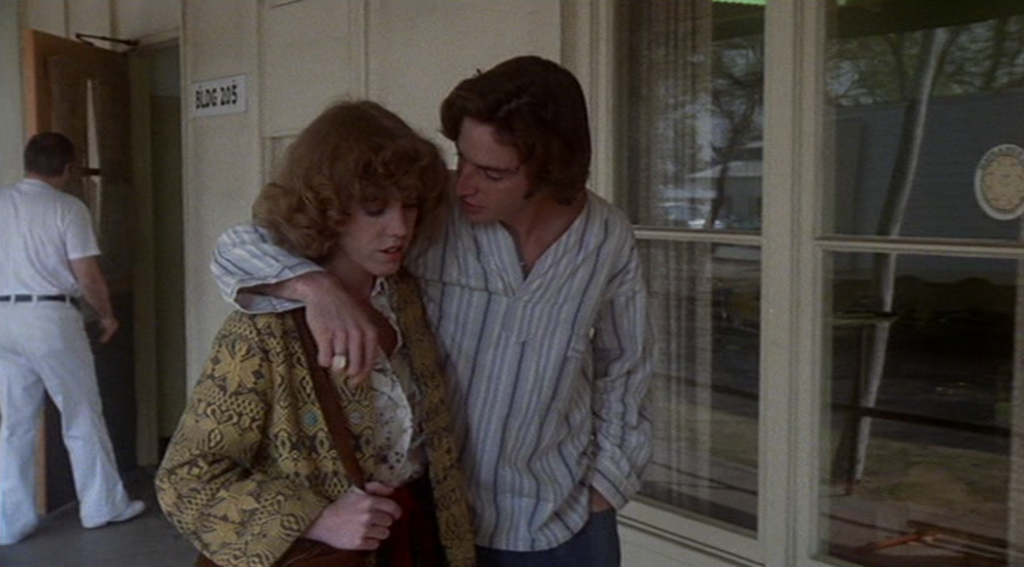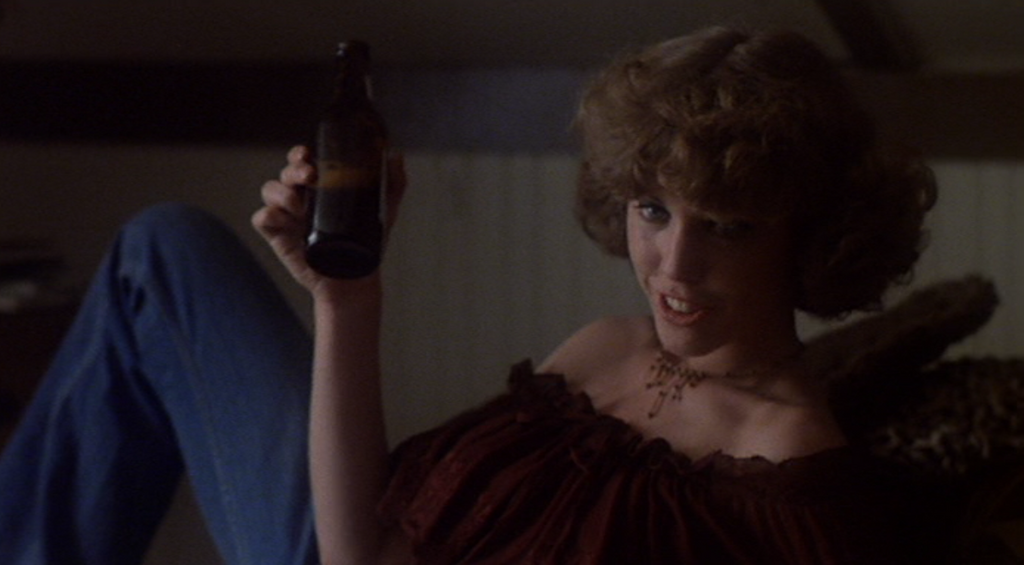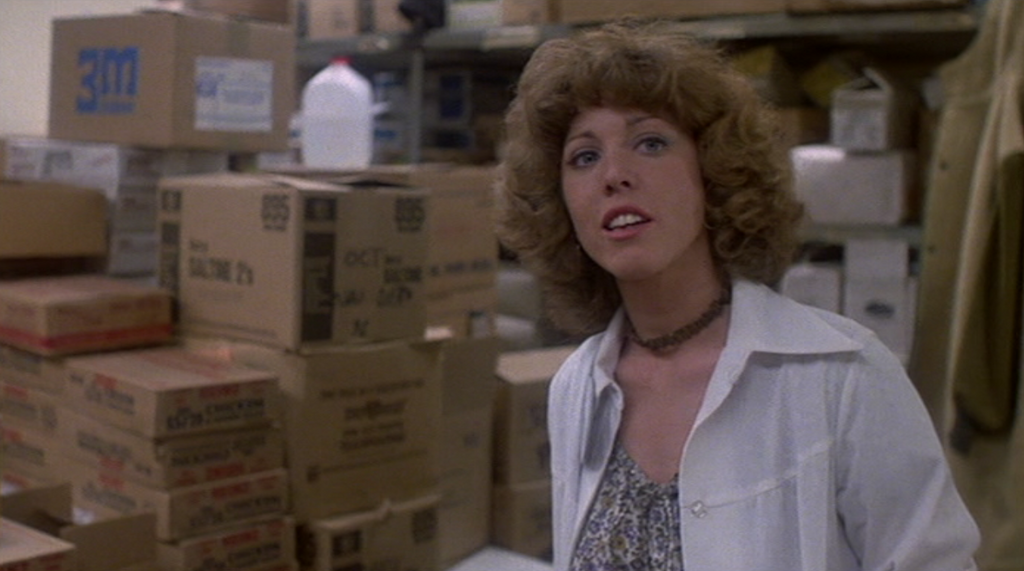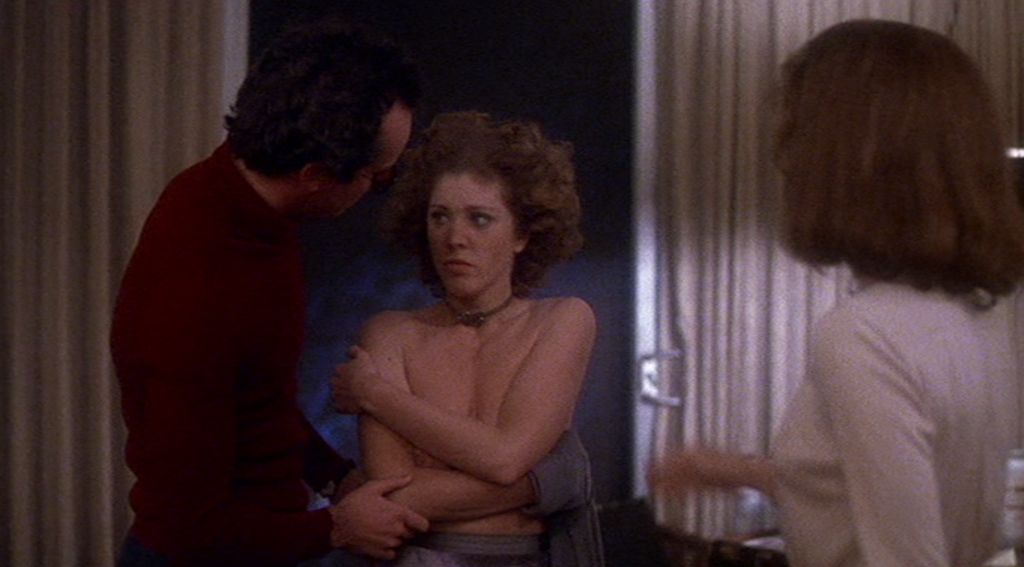 There's a heart-stopping line in Sarah Polley's recent feature, Away From Her, in which Julie Christie's character (a woman lapsing ever further into Alzheimer's-related dementia) has a chilling moment of lucidity. Placidly watching a news report about the wars in the Middle East, she turns to her husband and asks: "Don't they remember Vietnam?" The simple poignancy of this moment in Away From Her -- the loss of history as both a personal and national tragedy -- haunted StinkyLulu's screening of Hal Ashby's film about the home front during the Vietnam era, Coming Home, a film which -- nearly three decades after its release -- offers unexpected and timely chills. Hal Ashby's film depicts the experience of veterans, their families and their caregivers in 1968 (in the months immediately after the Tet Offensive, the cataclysmic battle that inspired both a retaliatory "surge" by the U.S. military and which, concomitantly, marked the greatest number of U.S. casualties in the history of the conflict). And while Coming Home's narrative structure is built mostly around the dramatic romance that emerges between Sally The Officer's Wife and Luke The Paralyzed Enlisted Man (Jane Fonda and Jon Voight, in trophy snagging performances), the film operates as an intimate chamber piece for four voices, incorporating the blistering nominated performance by Bruce Dern as Fonda's husband and, as a party girl caught up in the sweeping carnage of war...
There's a heart-stopping line in Sarah Polley's recent feature, Away From Her, in which Julie Christie's character (a woman lapsing ever further into Alzheimer's-related dementia) has a chilling moment of lucidity. Placidly watching a news report about the wars in the Middle East, she turns to her husband and asks: "Don't they remember Vietnam?" The simple poignancy of this moment in Away From Her -- the loss of history as both a personal and national tragedy -- haunted StinkyLulu's screening of Hal Ashby's film about the home front during the Vietnam era, Coming Home, a film which -- nearly three decades after its release -- offers unexpected and timely chills. Hal Ashby's film depicts the experience of veterans, their families and their caregivers in 1968 (in the months immediately after the Tet Offensive, the cataclysmic battle that inspired both a retaliatory "surge" by the U.S. military and which, concomitantly, marked the greatest number of U.S. casualties in the history of the conflict). And while Coming Home's narrative structure is built mostly around the dramatic romance that emerges between Sally The Officer's Wife and Luke The Paralyzed Enlisted Man (Jane Fonda and Jon Voight, in trophy snagging performances), the film operates as an intimate chamber piece for four voices, incorporating the blistering nominated performance by Bruce Dern as Fonda's husband and, as a party girl caught up in the sweeping carnage of war...approximately 16 minutes and 50 seconds
20 scenes
roughly 13% of film's total running time
Penelope Milford plays Vi Munson, a hard-working, hard-partying working class gal who strikes up an unlikely friendship with Fonda's Sally, when Sally's husband and Vi's current boyfriend ship out on the same night.20 scenes
roughly 13% of film's total running time
 While Sally volunteers as a kind of grown-up candystriper in the rehab ward of the veterans hospital, Milford's Vi is stuck toiling as a nutritionist in the hospital kitchen. And it quickly becomes clear that for all her drinking, toking and sleeping around, Vi's party girl habits are mostly her way of blowing off steam. The real reason Vi's sticking so close to the military hospital? So she can be close to her kid brother Bill (David Carradine, in an efficiently devastating performance), a veteran who returned from two weeks in 'Nam with innumerable invisible (ie. mental) wounds.
While Sally volunteers as a kind of grown-up candystriper in the rehab ward of the veterans hospital, Milford's Vi is stuck toiling as a nutritionist in the hospital kitchen. And it quickly becomes clear that for all her drinking, toking and sleeping around, Vi's party girl habits are mostly her way of blowing off steam. The real reason Vi's sticking so close to the military hospital? So she can be close to her kid brother Bill (David Carradine, in an efficiently devastating performance), a veteran who returned from two weeks in 'Nam with innumerable invisible (ie. mental) wounds. Milford's performance as Vi contributes an essential tenderness to Coming Home, sweetening the sentiment that drives the film, steering it away from either dourness or sourness and toward the hope that Ashby's film seems to so crave.
Milford's performance as Vi contributes an essential tenderness to Coming Home, sweetening the sentiment that drives the film, steering it away from either dourness or sourness and toward the hope that Ashby's film seems to so crave. The role of Vi -- the bad girl destined to be a really good woman -- is at once limited and also rife with contradictions: Vi's a bold pleasure seeker who desperately craves approval; she's also a lost little girl who with serious mother hen tendencies. As written, Vi (like Stapleton's Pearl) is a woman who makes up for what she lacks in intelligence with extraordinary savvy and intuition. As such, the role of Vi demands a tricksy balance.
The role of Vi -- the bad girl destined to be a really good woman -- is at once limited and also rife with contradictions: Vi's a bold pleasure seeker who desperately craves approval; she's also a lost little girl who with serious mother hen tendencies. As written, Vi (like Stapleton's Pearl) is a woman who makes up for what she lacks in intelligence with extraordinary savvy and intuition. As such, the role of Vi demands a tricksy balance. And Milford -- bless her heart -- doesn't really meet the challenge. Milford's Vi doesn't radiate the kind of innate charisma or protean wisdom necessary to justify Fonda's attraction to her as a friend and mentor. Nor does Milford's Vi blaze with the kind of elemental anguish or fury to balance Bruce Dern's incendiary -- and, in terms of construction, complementary -- performance. Simply put, and sadly so, Milford does not hold down her corner of this four character piece.
And Milford -- bless her heart -- doesn't really meet the challenge. Milford's Vi doesn't radiate the kind of innate charisma or protean wisdom necessary to justify Fonda's attraction to her as a friend and mentor. Nor does Milford's Vi blaze with the kind of elemental anguish or fury to balance Bruce Dern's incendiary -- and, in terms of construction, complementary -- performance. Simply put, and sadly so, Milford does not hold down her corner of this four character piece. Milford's Vi, for all her acting out, remains a curiously passive and immature presence when the role demands an almost constant, kinetic acuity. (Not only is it tough to remember that Carradine's Bill is Vi's kid brother, but it's nearly impossible to believe that Fonda's Sally would ever follow Vi's lead.) The result? Vi becomes an emotional accessory for Sally, rather than her guiding star. What's worse, Milford's Vi seems always already almost a victim.
Milford's Vi, for all her acting out, remains a curiously passive and immature presence when the role demands an almost constant, kinetic acuity. (Not only is it tough to remember that Carradine's Bill is Vi's kid brother, but it's nearly impossible to believe that Fonda's Sally would ever follow Vi's lead.) The result? Vi becomes an emotional accessory for Sally, rather than her guiding star. What's worse, Milford's Vi seems always already almost a victim. There's a story that circulates about the casting of Coming Home, that Fonda wanted her recent Julia co-star -- an emerging actress named Meryl Streep -- for the role of Vi. It's a pungent legend, mostly because it's suggestive of how substantial Vi might be within the world of Coming Home. Unfortunately, Milford's performance is more negligible than formidable, consistently characterized by vapid listening, shallowly reactive emotional states and (most infuriatingly) glancing away from the camera at essential moments.
There's a story that circulates about the casting of Coming Home, that Fonda wanted her recent Julia co-star -- an emerging actress named Meryl Streep -- for the role of Vi. It's a pungent legend, mostly because it's suggestive of how substantial Vi might be within the world of Coming Home. Unfortunately, Milford's performance is more negligible than formidable, consistently characterized by vapid listening, shallowly reactive emotional states and (most infuriatingly) glancing away from the camera at essential moments. A remarkable role. An appealing actress. A negligible performance.
A remarkable role. An appealing actress. A negligible performance.



1 comment:
felt that she did a really good job...maybe could have had the writers beef up a couple of scene though...cute personality...
Post a Comment